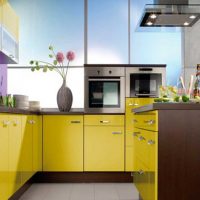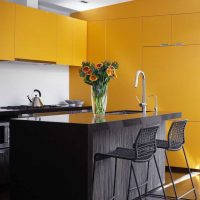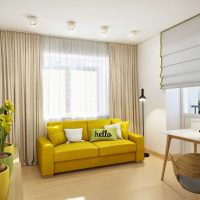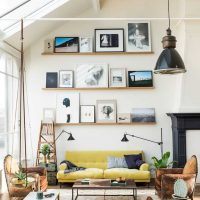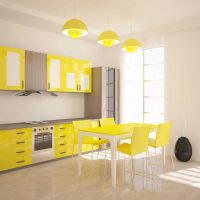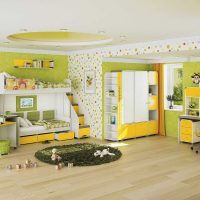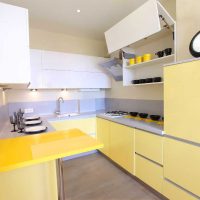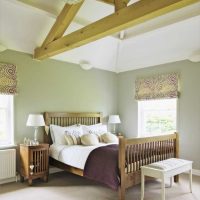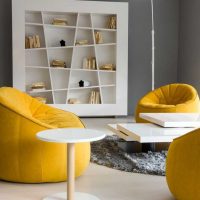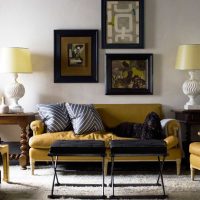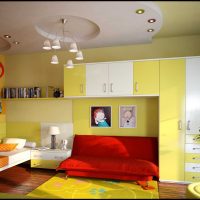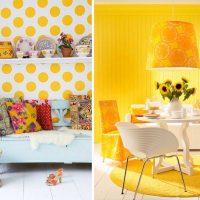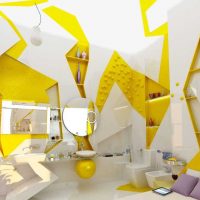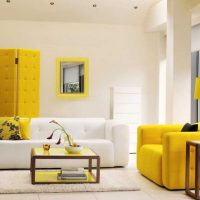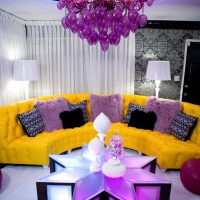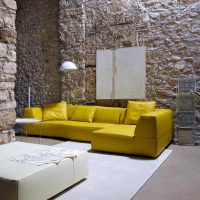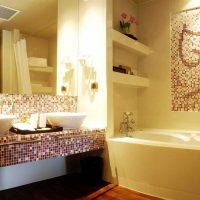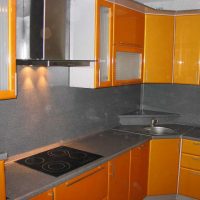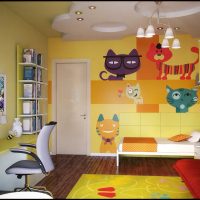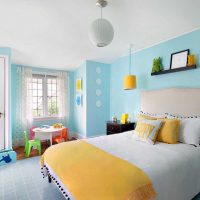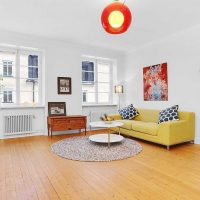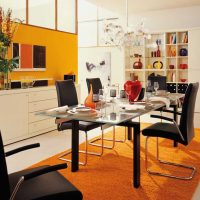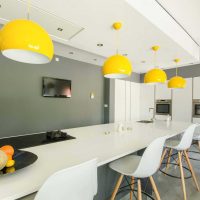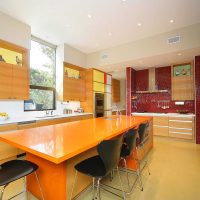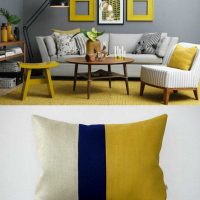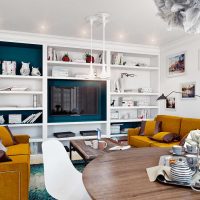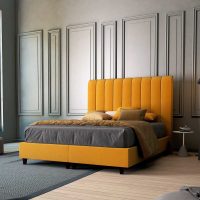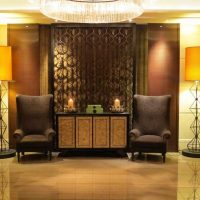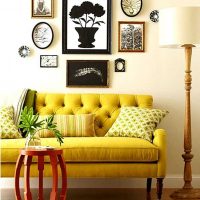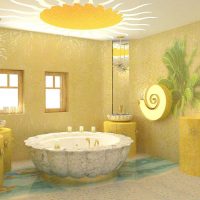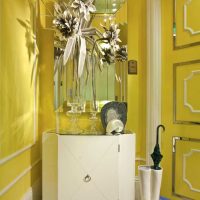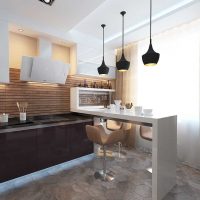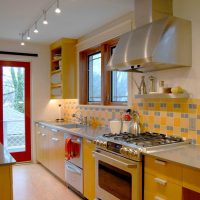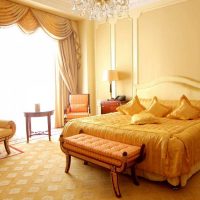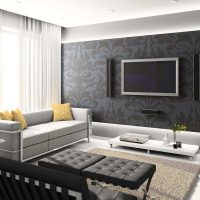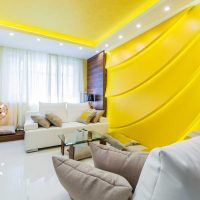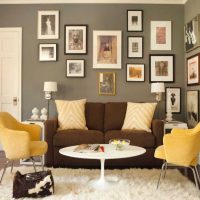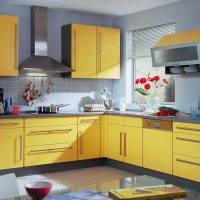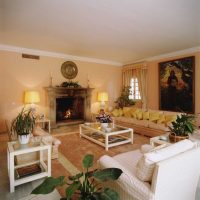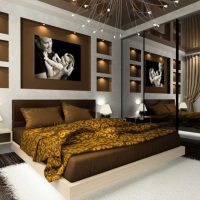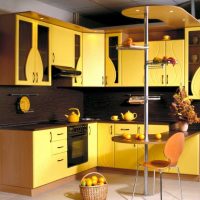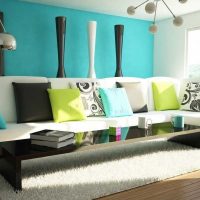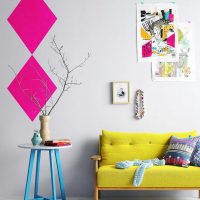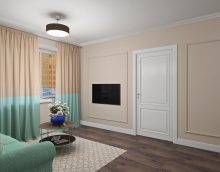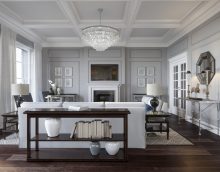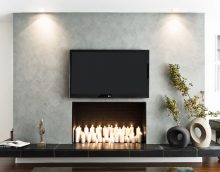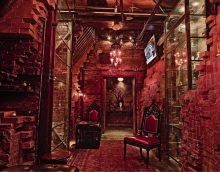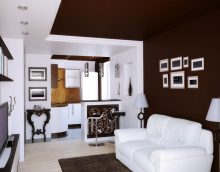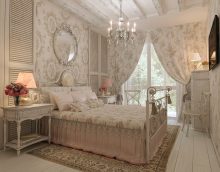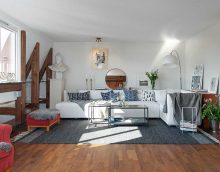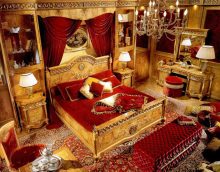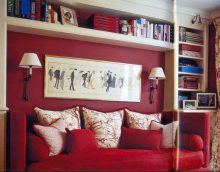Mustard color interior design
Creating a modern interior that meets all the canons of design art is a very difficult task. The designer needs to have great knowledge and have an impeccable taste given by nature. A variety of styles dictates its own laws, but it is based on such fundamental design concepts as proportionality, harmony, the golden ratio and the golden mean. From antiquity to modern trends such as functionalism, minimalism, pop art, hi-tech, deconstructivism, kitsch, eclecticism and stylization, the style has its own characteristics and design laws.
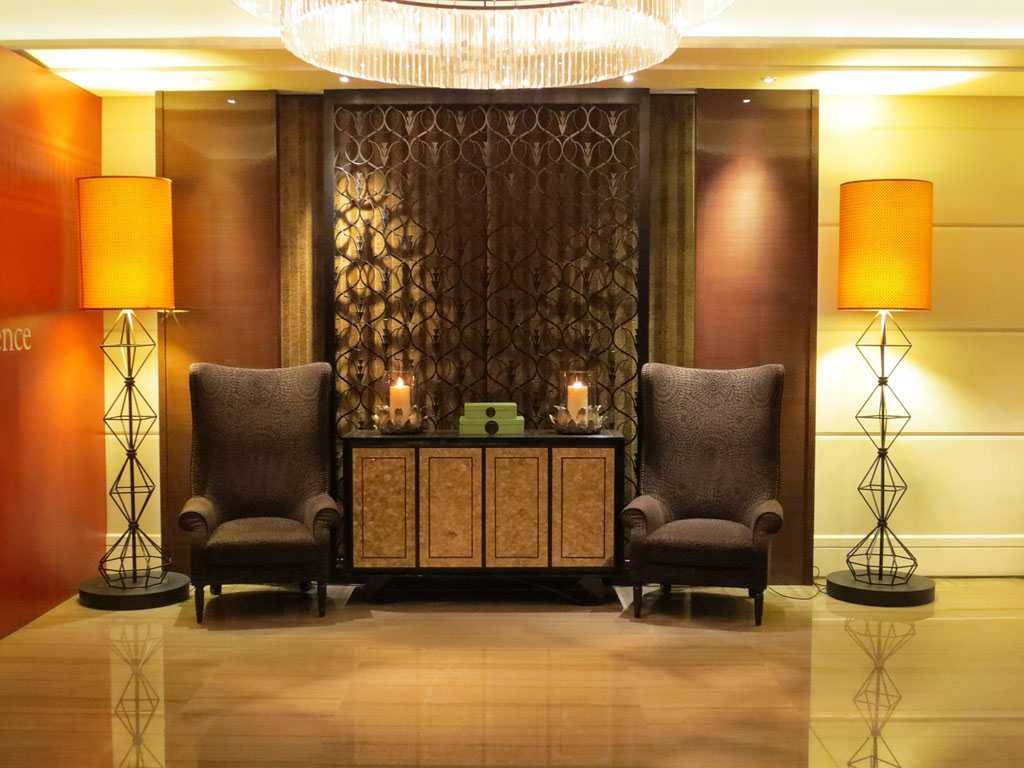
Mustard color in room design
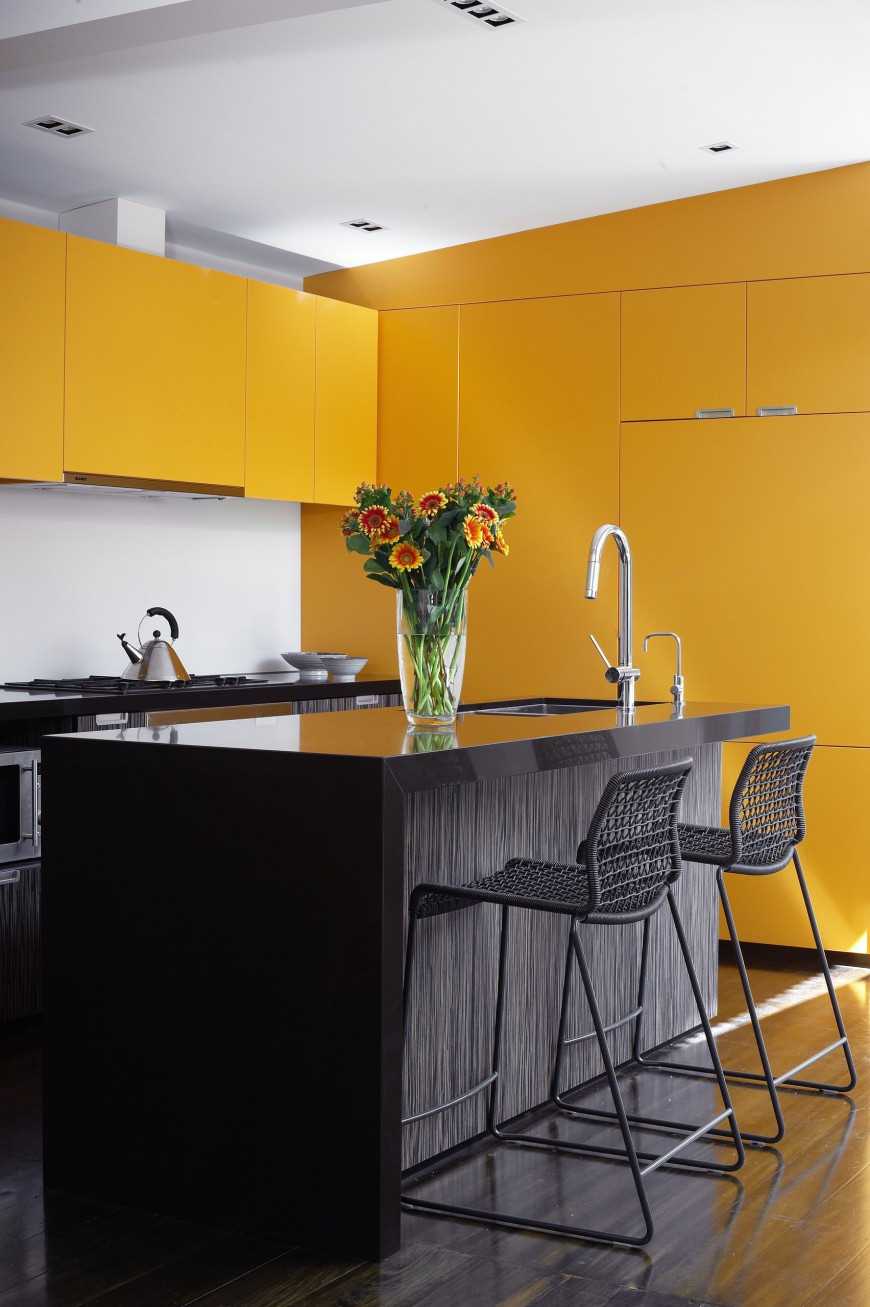
Light mustard room design
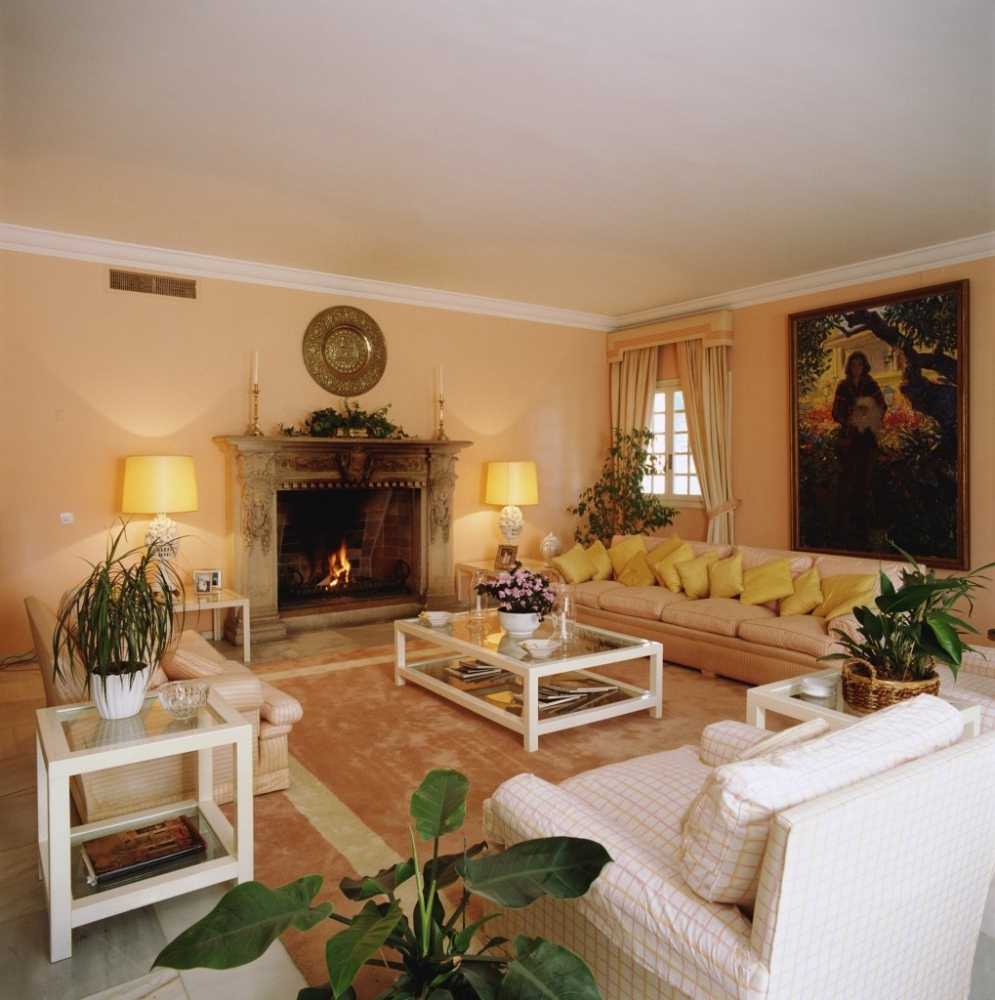
Mustard color room interior
Content
Features of spicy "mustard"
At all times, the mustard color in the interior was at the height of fashion. He is very popular among decorators. This is due to the fact that the mustard color has many shades. It all depends on what prevails in the color - yellow or brown. Designers are also attracted by the play of color depending on the lighting. In bright sunlight, a yellow tint is more pronounced, in low light - the color becomes darker. Brown adds warmth and mystery to yellow. It is not annoying, does not cause anxiety and vague anxiety. The shades of mustard are warm and cozy. At all times, he has been associated with luxury and wealth. It does not have the vulgar vulgarity of kitsch. This is a calm, moderate shade, giving solidity and inimitable style in the room.
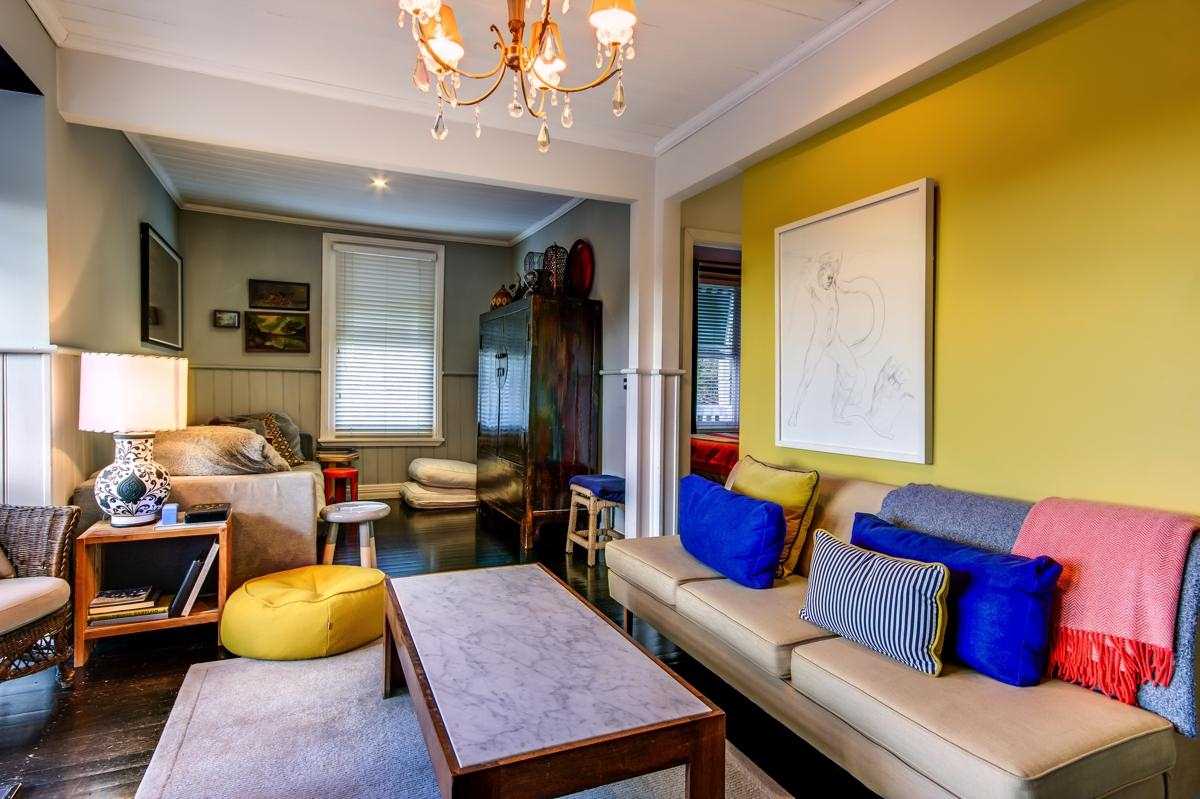
Mustard color in the interior of the apartment
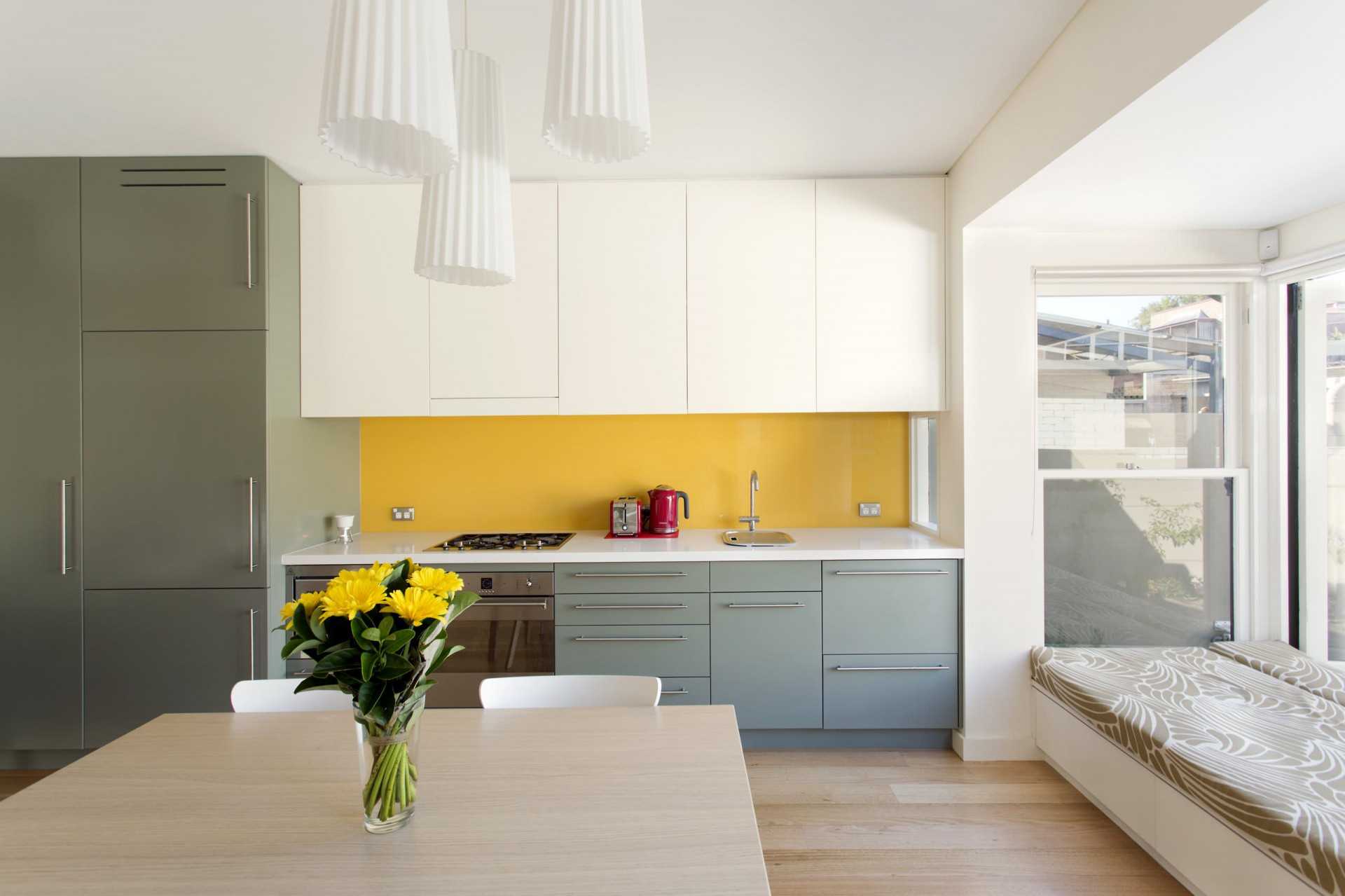
Mustard color interior design
The advantages are the following aspects:
- Self-sufficiency. The color of mustard in any interior will be dominant.
- Nobility. There is no vulgar vulgarity of a bright flashy color. Adding brown to bright yellow gives saturation and warmth.
- Versatility. In different interiors, it looks different, the color changes from the surrounding background and lighting.
- The ability to combine with other colors, creating a fashionable and unique design.
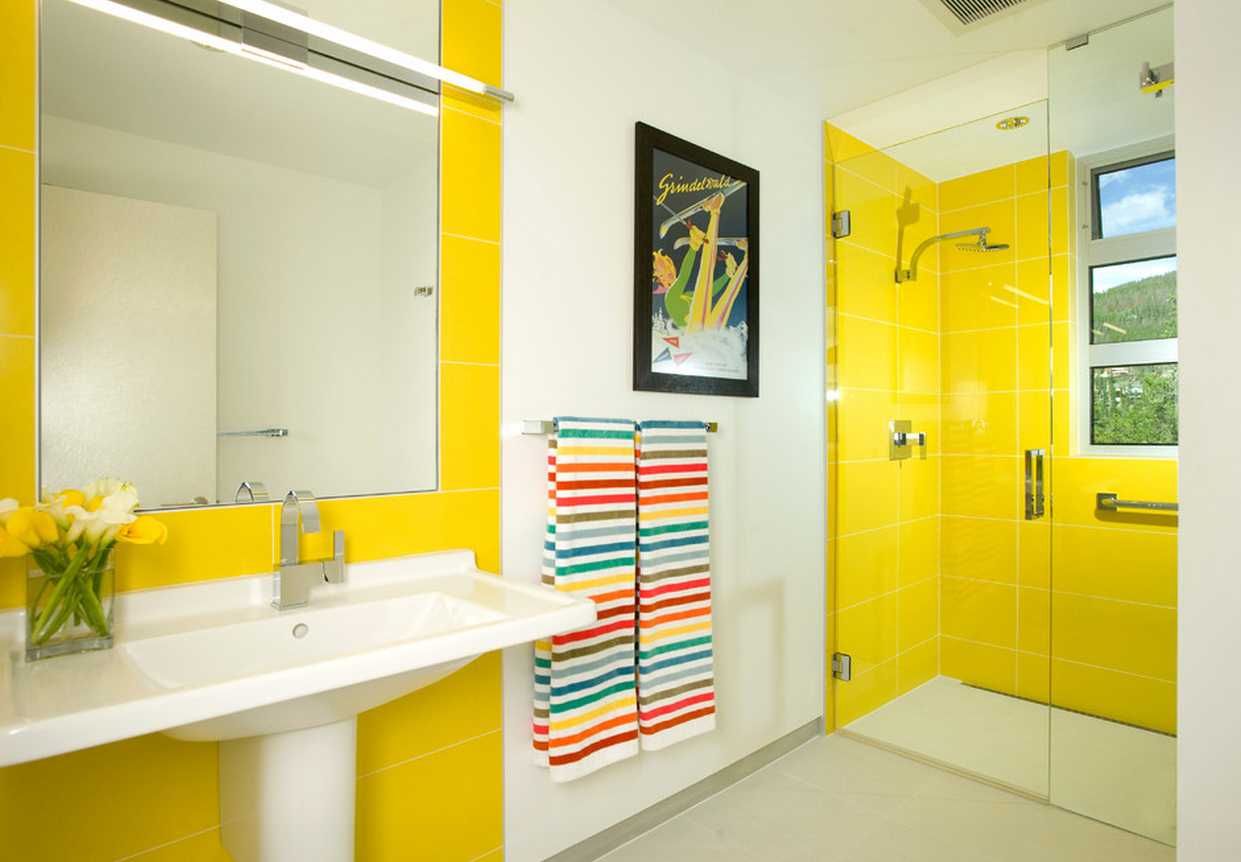
Mustard color in room design
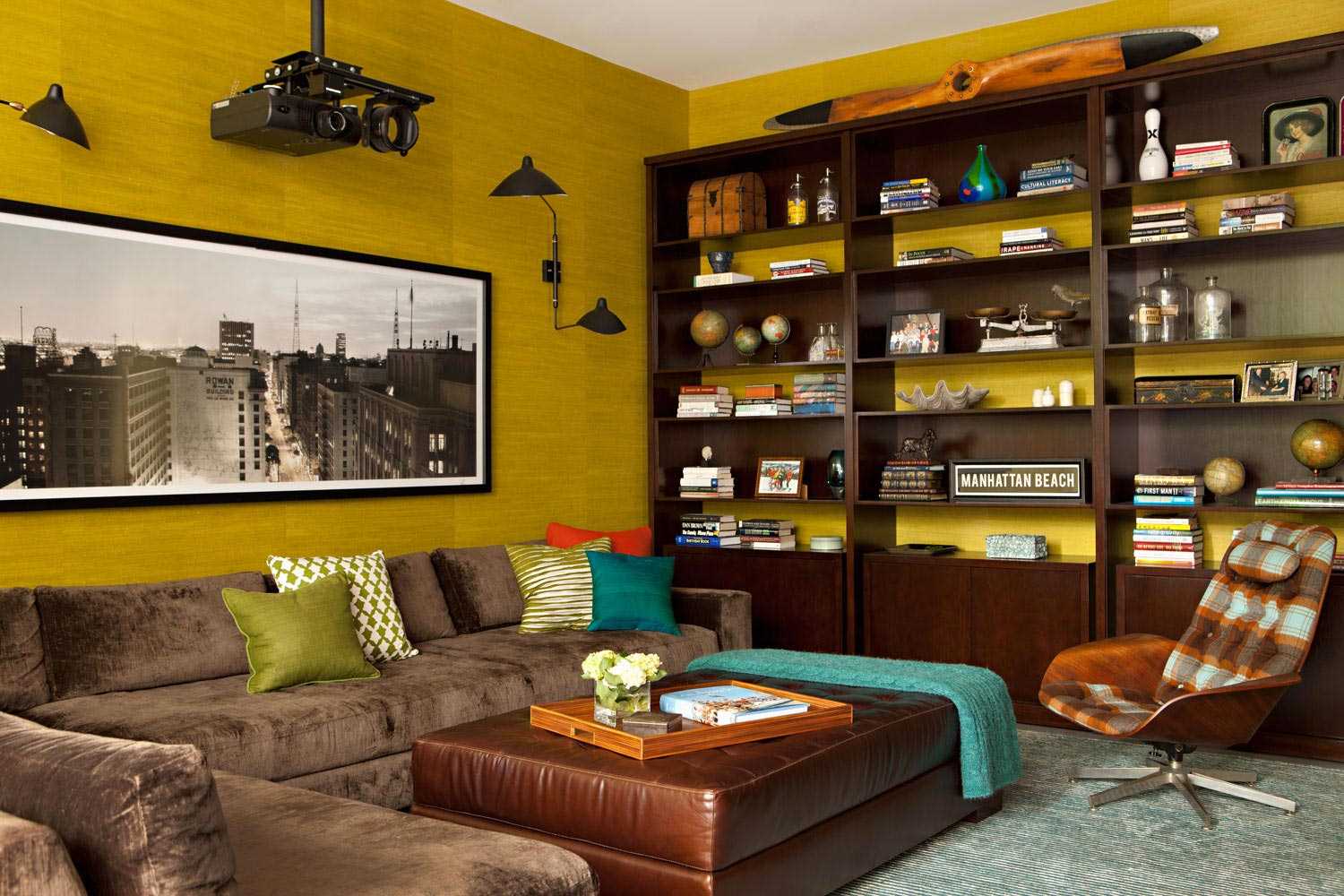
Light mustard room design
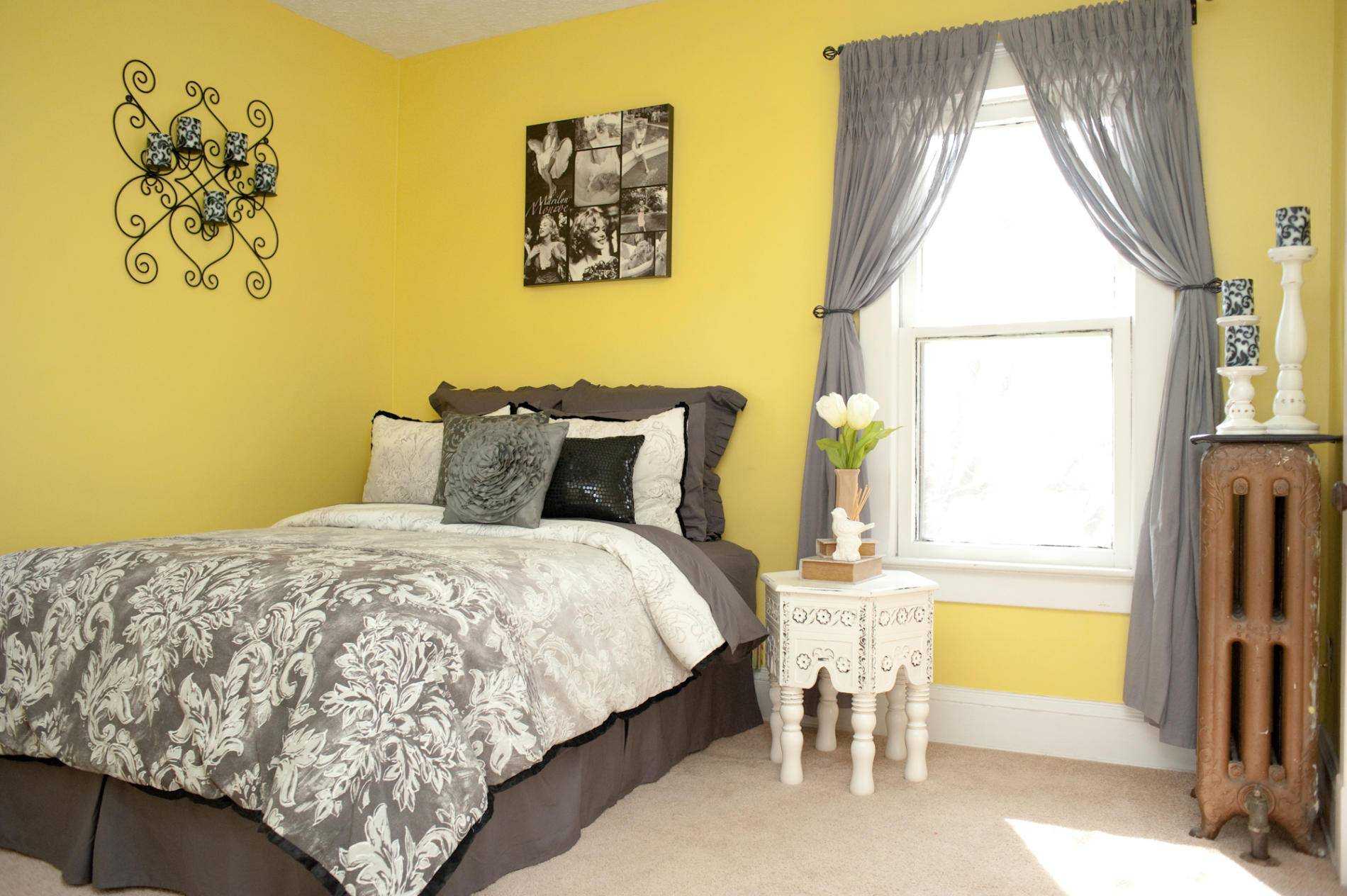
Mustard color room interior
- Democracy. It is equally well suited for decoration in a classic style and modern directions.
- Universality. Suitable for decoration of any room. Mustard color looks especially good in the interior of the living room.
- It does not cause irritation and fatigue. It gives a feeling of warmth and comfort in the room.
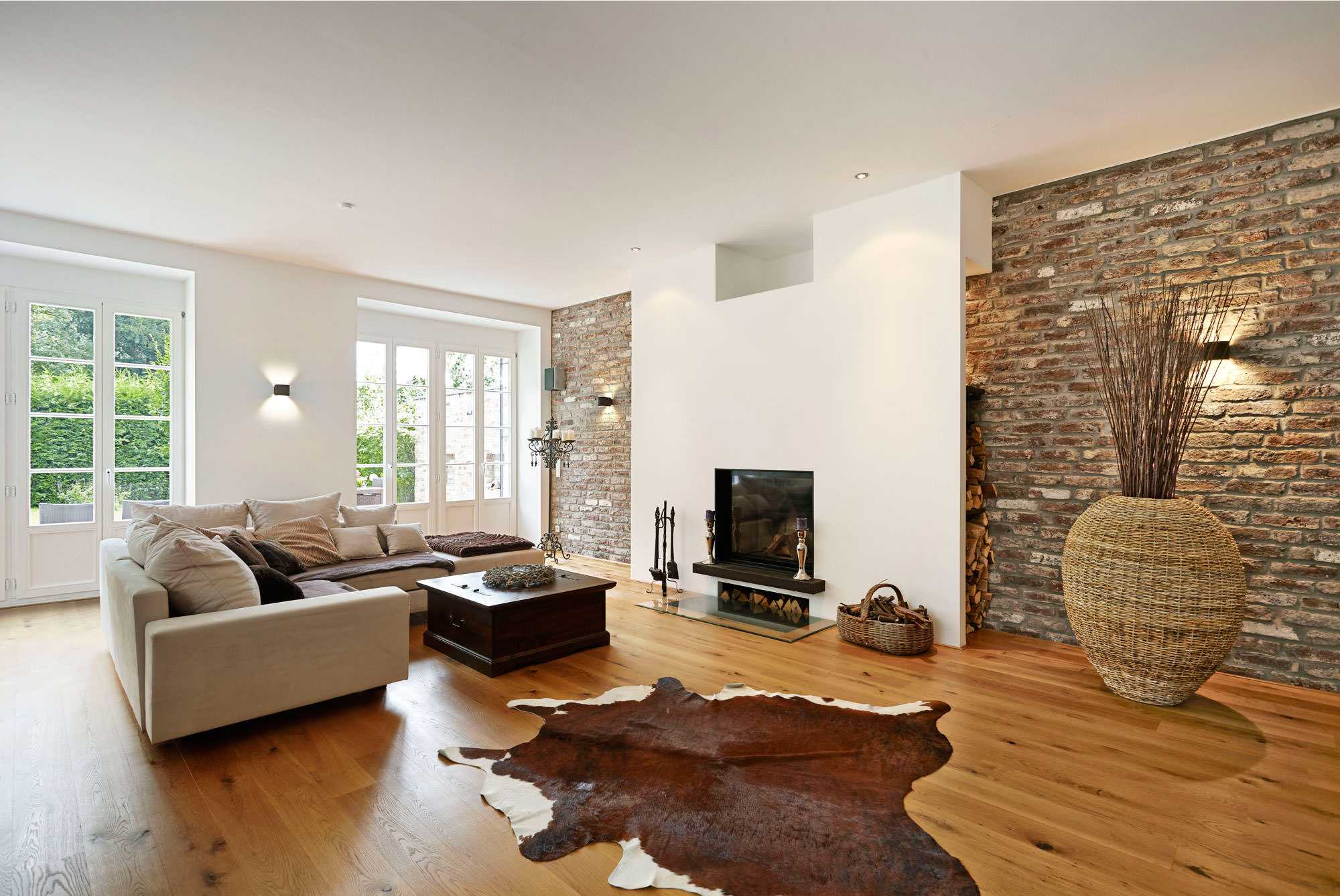
Mustard color in the interior of the apartment
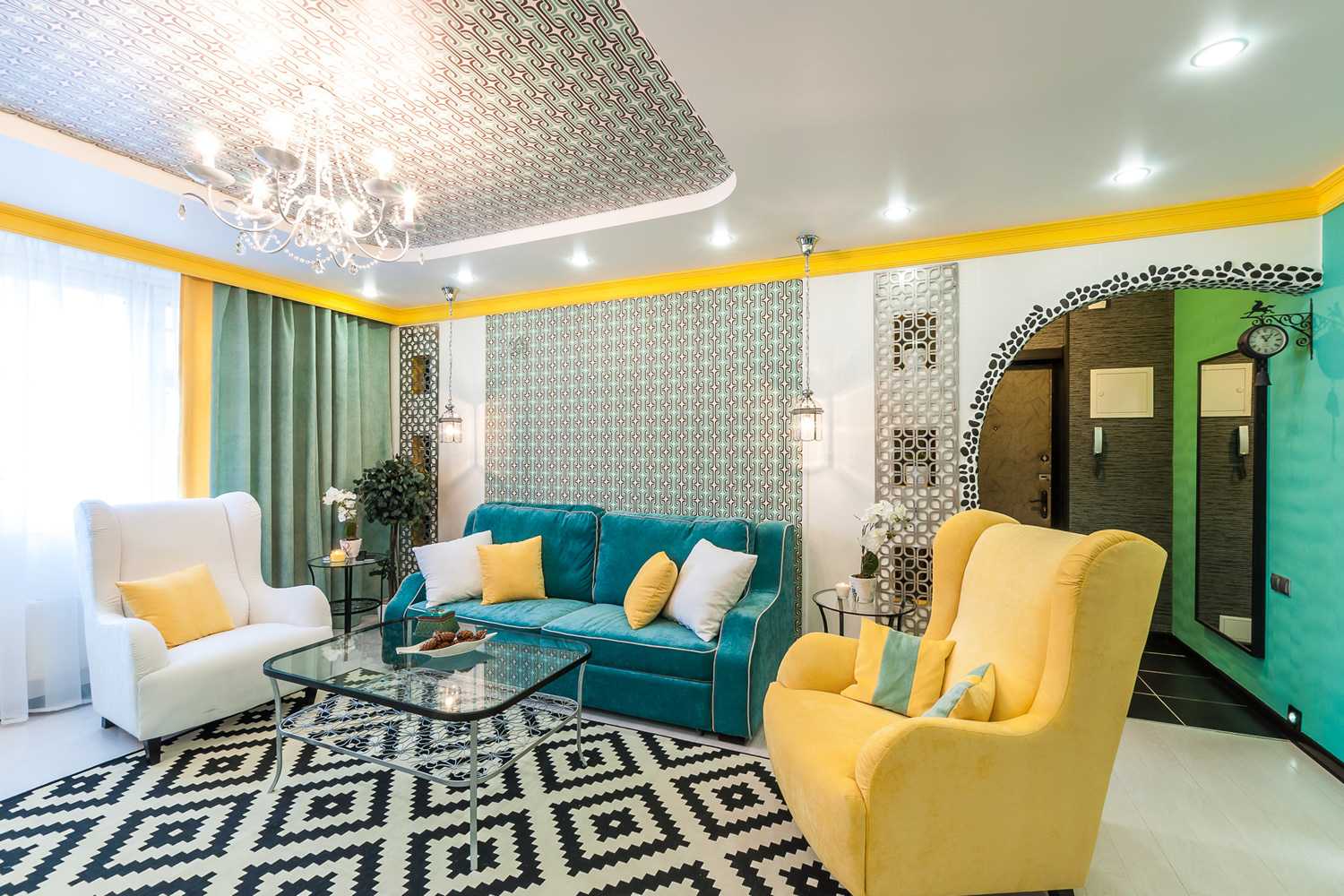
Mustard color interior design
Application rules
The features include its complexity. Not every designer will take the liberty of using this color in the interior. This is the lot of experienced and confident masters of their craft.
- When applying this shade, it is necessary to take into account its dominant role in the room. It interrupts other colors, due to its unusualness and brightness.
- Mustard walls in the interior do not combine with many colors, for example, with red, bright green.
- It is undesirable to use it in small, poorly lit rooms. Mustard becomes dark, brightness disappears. This color needs space and light. Then he will play in all his splendor.
- Keep in mind that this color of mustard visually reduces space. Therefore, now designers use it for zoning the room, that is, they paint one wall with this shade or use one object in the decor.
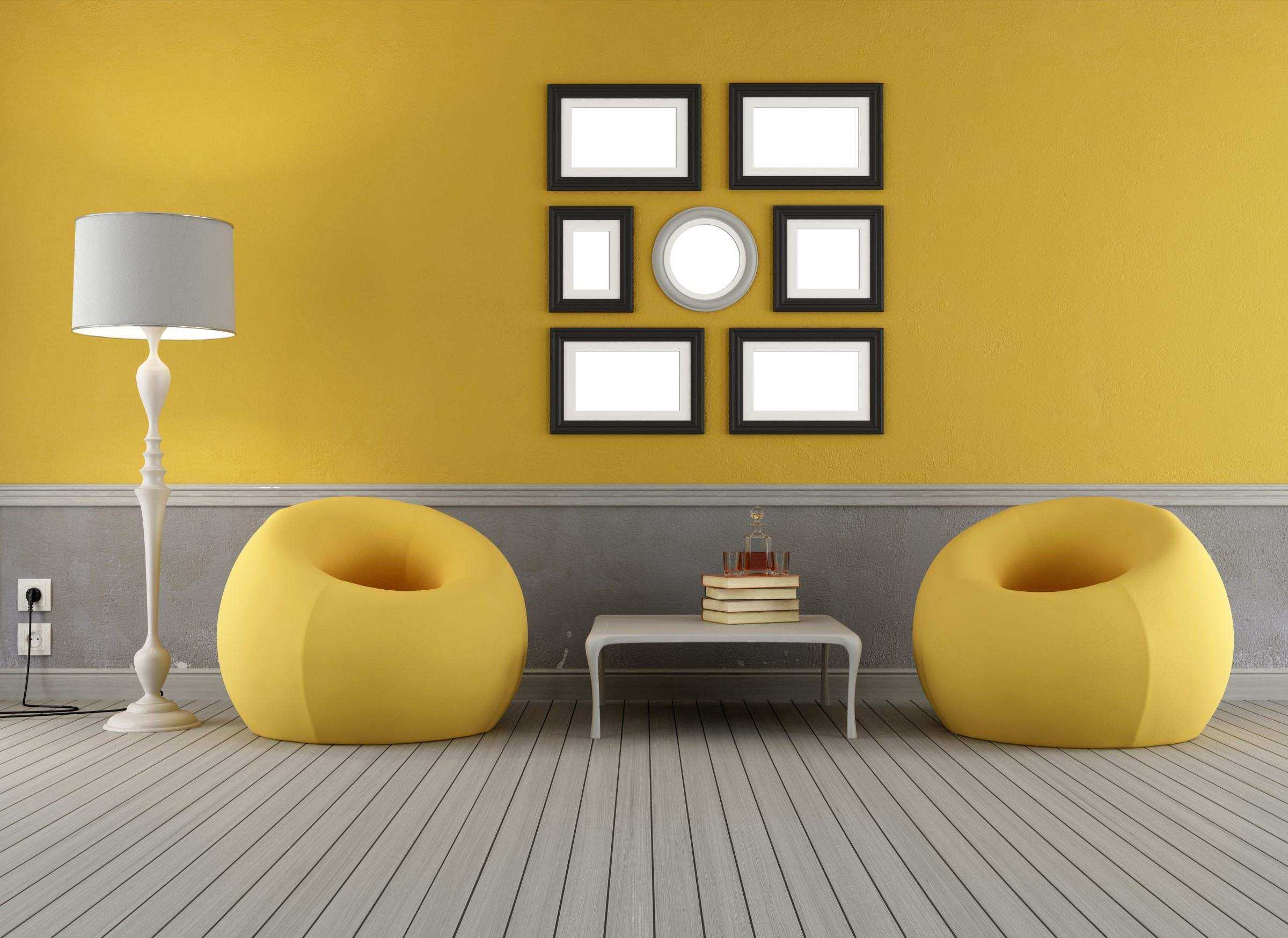
Mustard color in room design
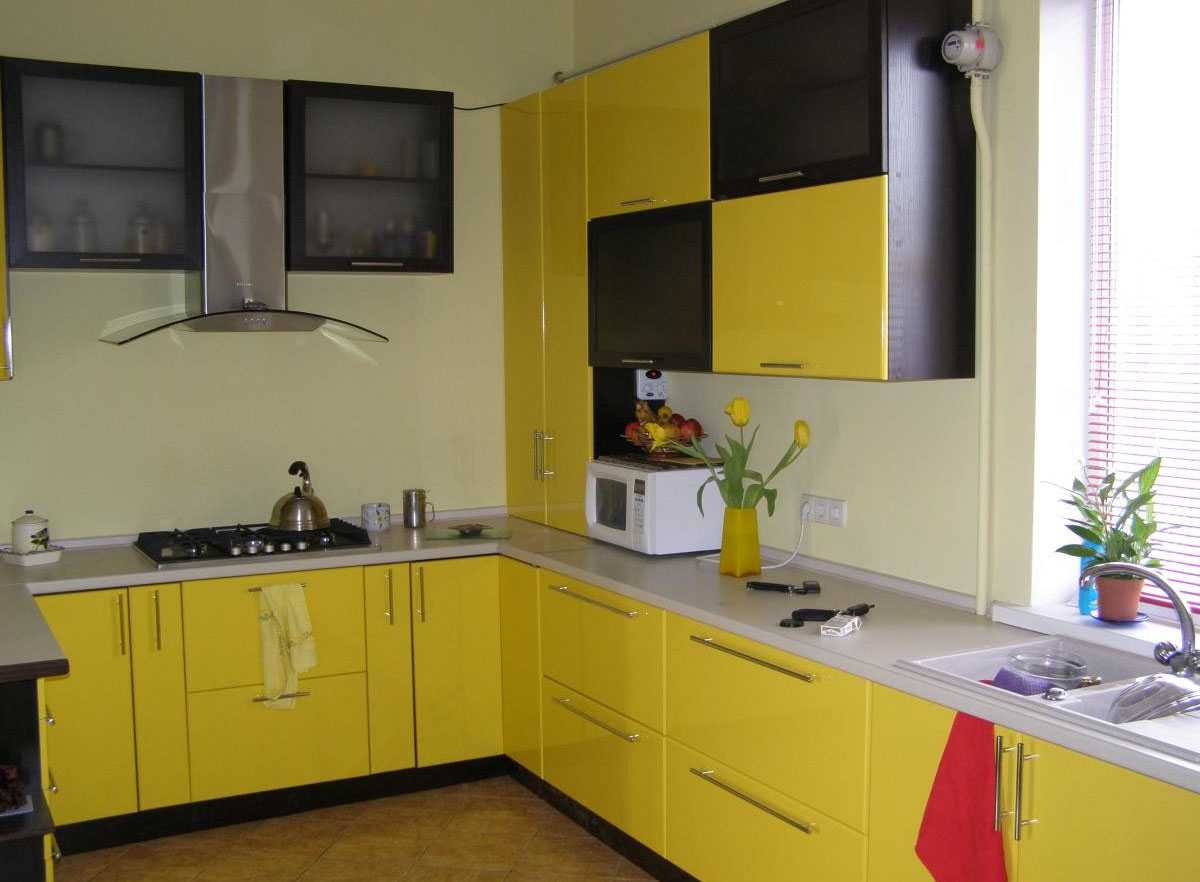
Light mustard room design
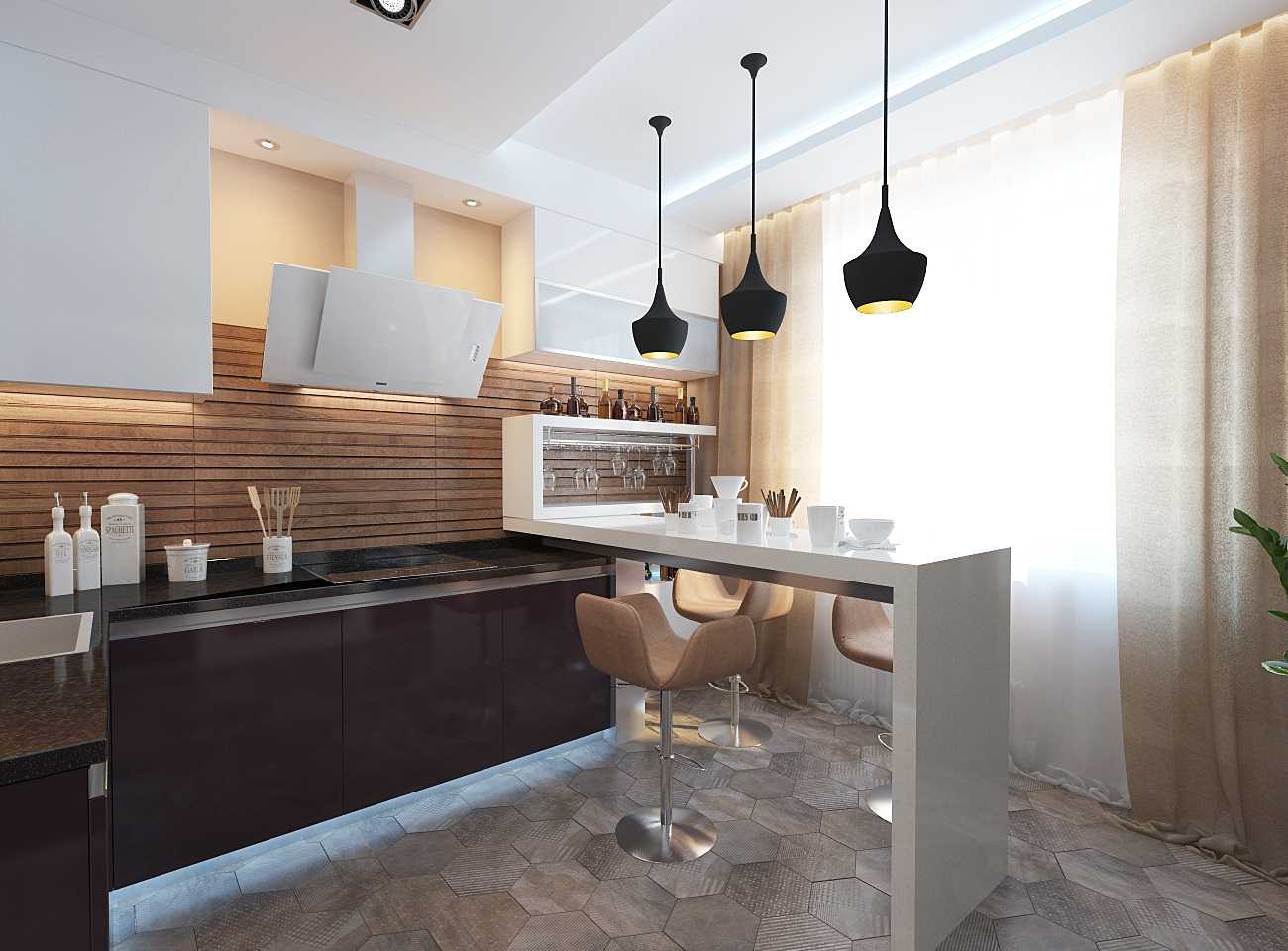
Mustard color room interior
The combination of mustard color with other colors in the interior
Designers offer different models and options for combining mustard color with other shades in the interior.
The simplest and most popular option is a combination with neutral colors. It is white, gray, beige, peach. They seem to highlight the color of mustard, making it less aggressive. The interior with a combination of gray and mustard colors looks especially fashionable and original. You can add a little black here for contrast. It can be any trinkets, accessories. Only you can not get involved in both mustard and black. It will be too eclectic. It’s hard to relax in such an interior. White will lighten, highlight colors, creating lightness and ease.
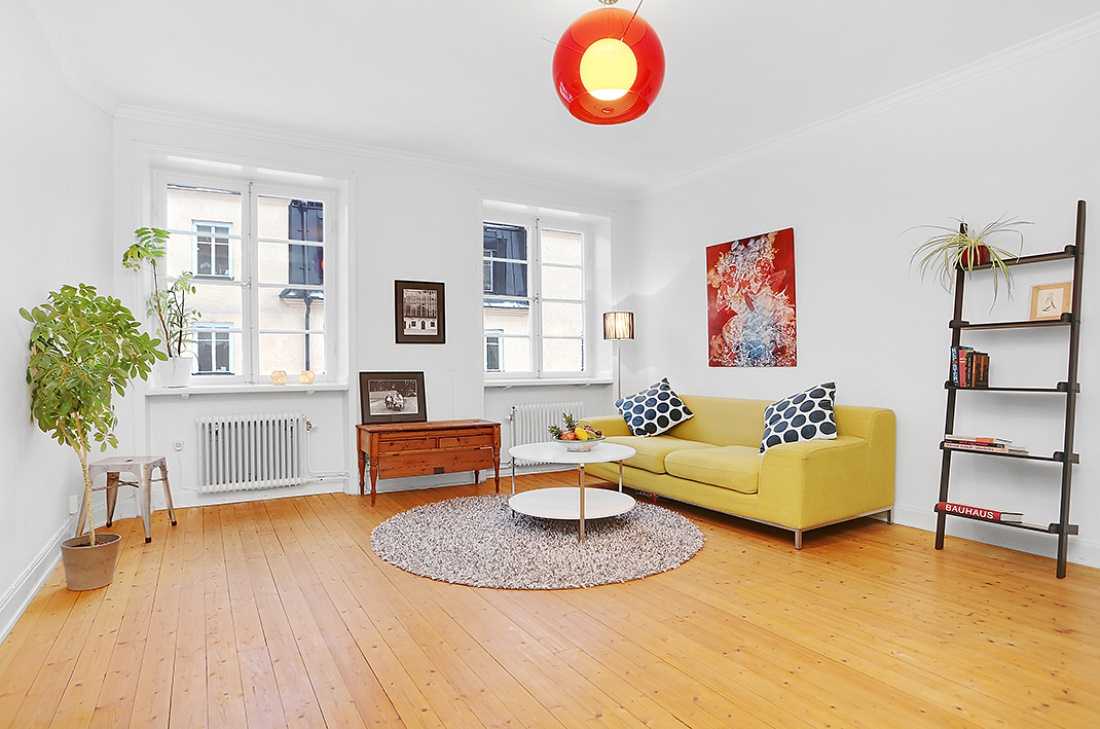
Mustard color in the interior of the apartment
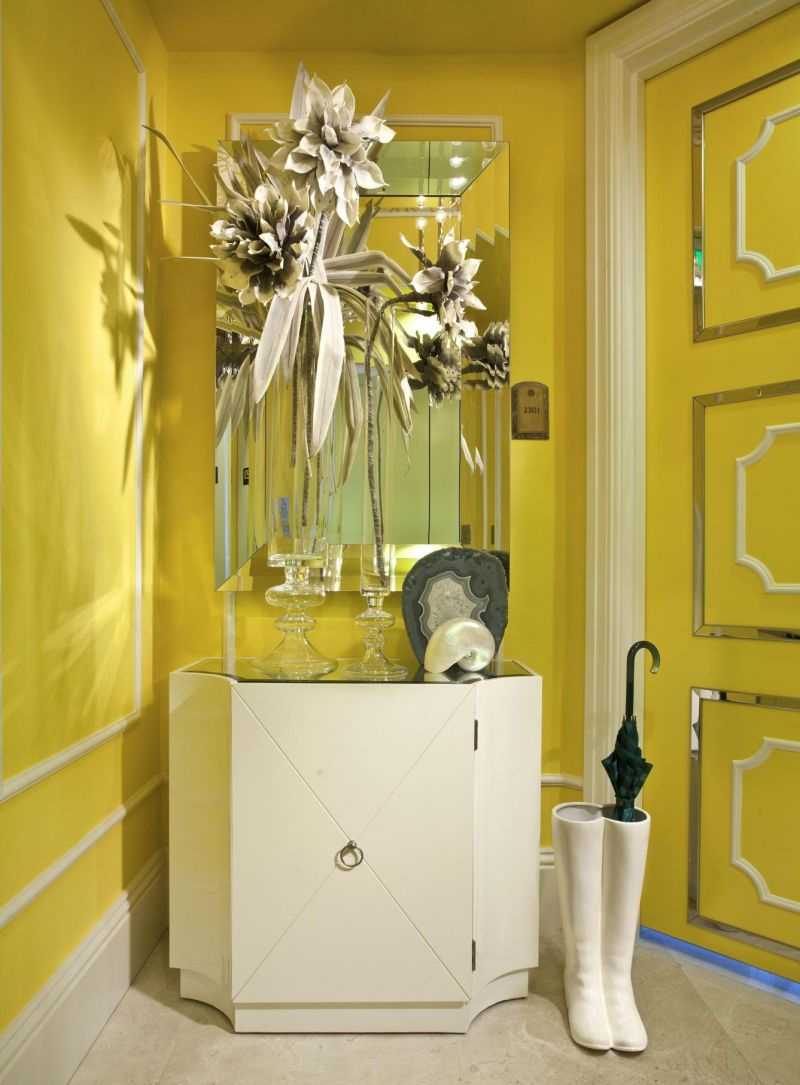
Mustard color interior design
Mustard + purple looks unusual and original. You must follow the golden rule. Purple should be in decor items, accessories in order to dilute the monotony of mustard color and make a bright note.
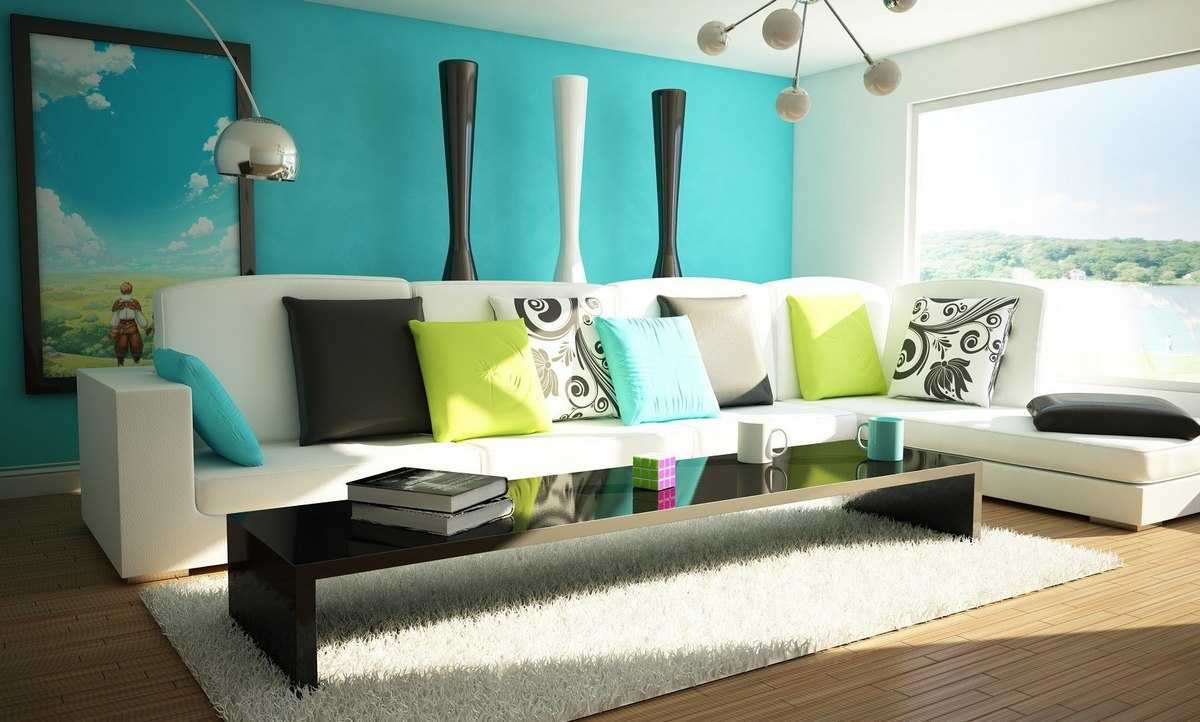
Mustard color in room design
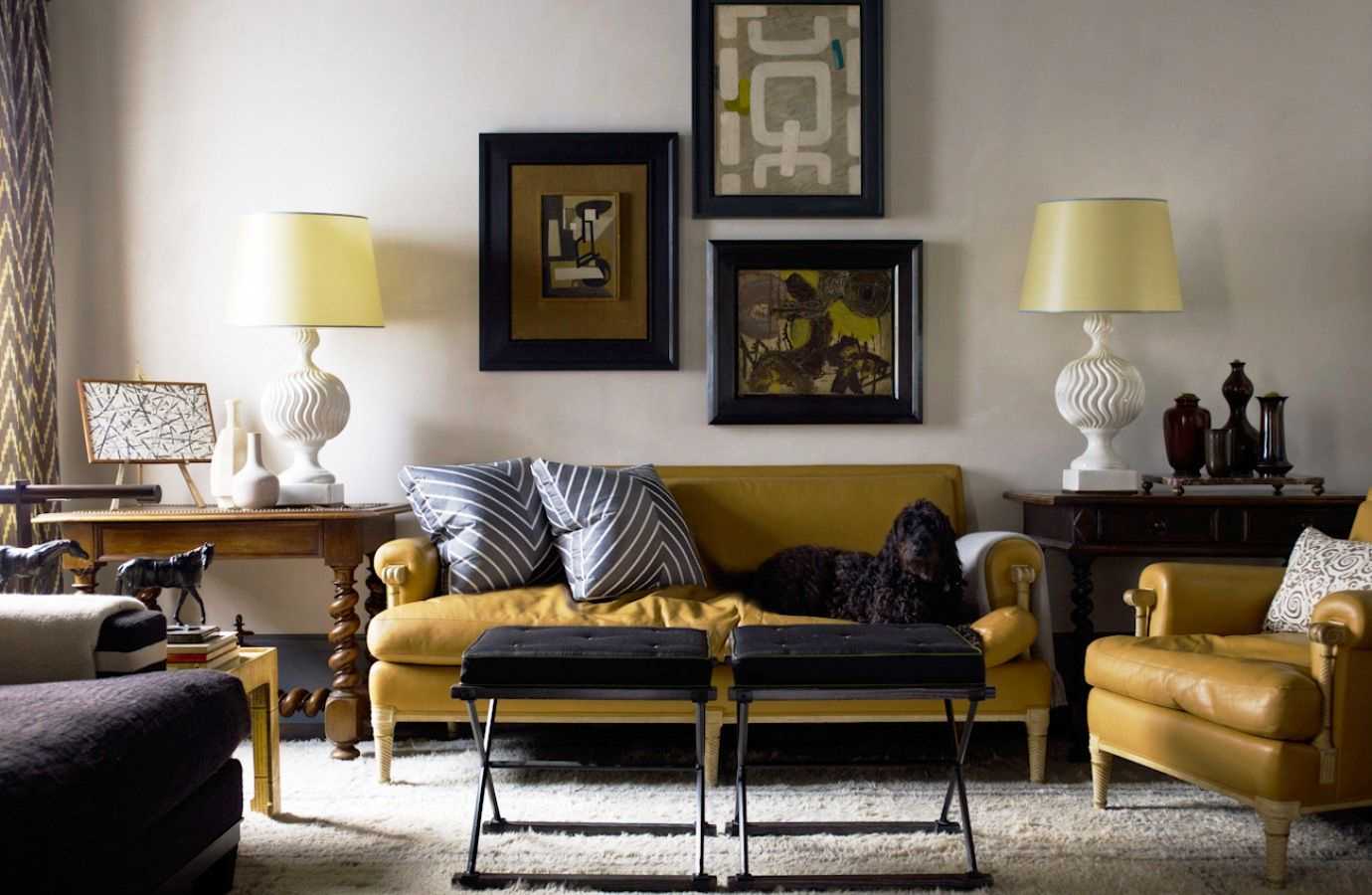
Light mustard room design
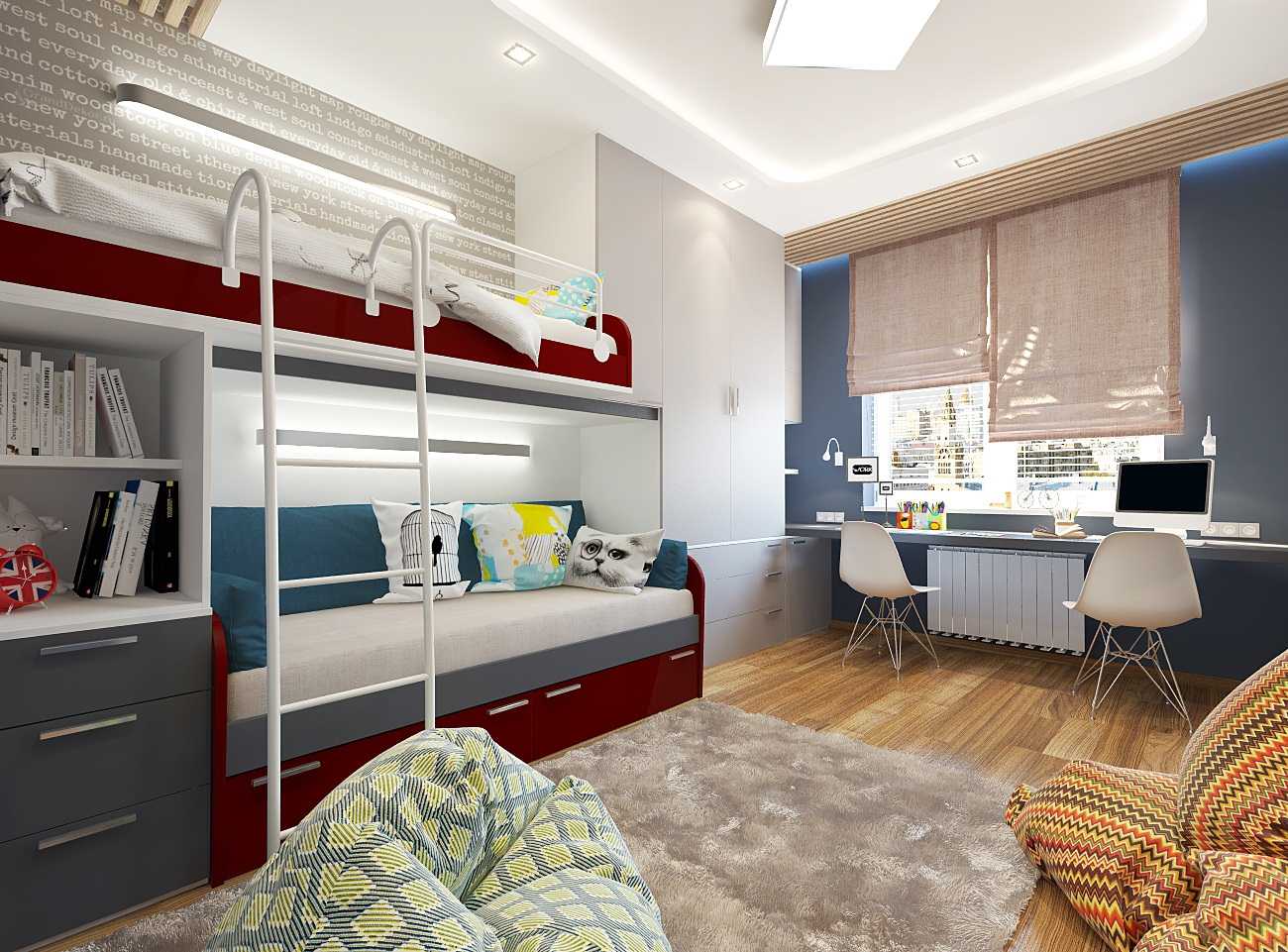
Mustard color room interior
A bold design decision to combine mustard + blue colors. It is interesting to use blue as the main one and make mustard accents in the form of decorative elements or upholstered furniture. Different colors are now very popular. The combination of unusual colors gives room for imagination, creating your own unique interior of the room.
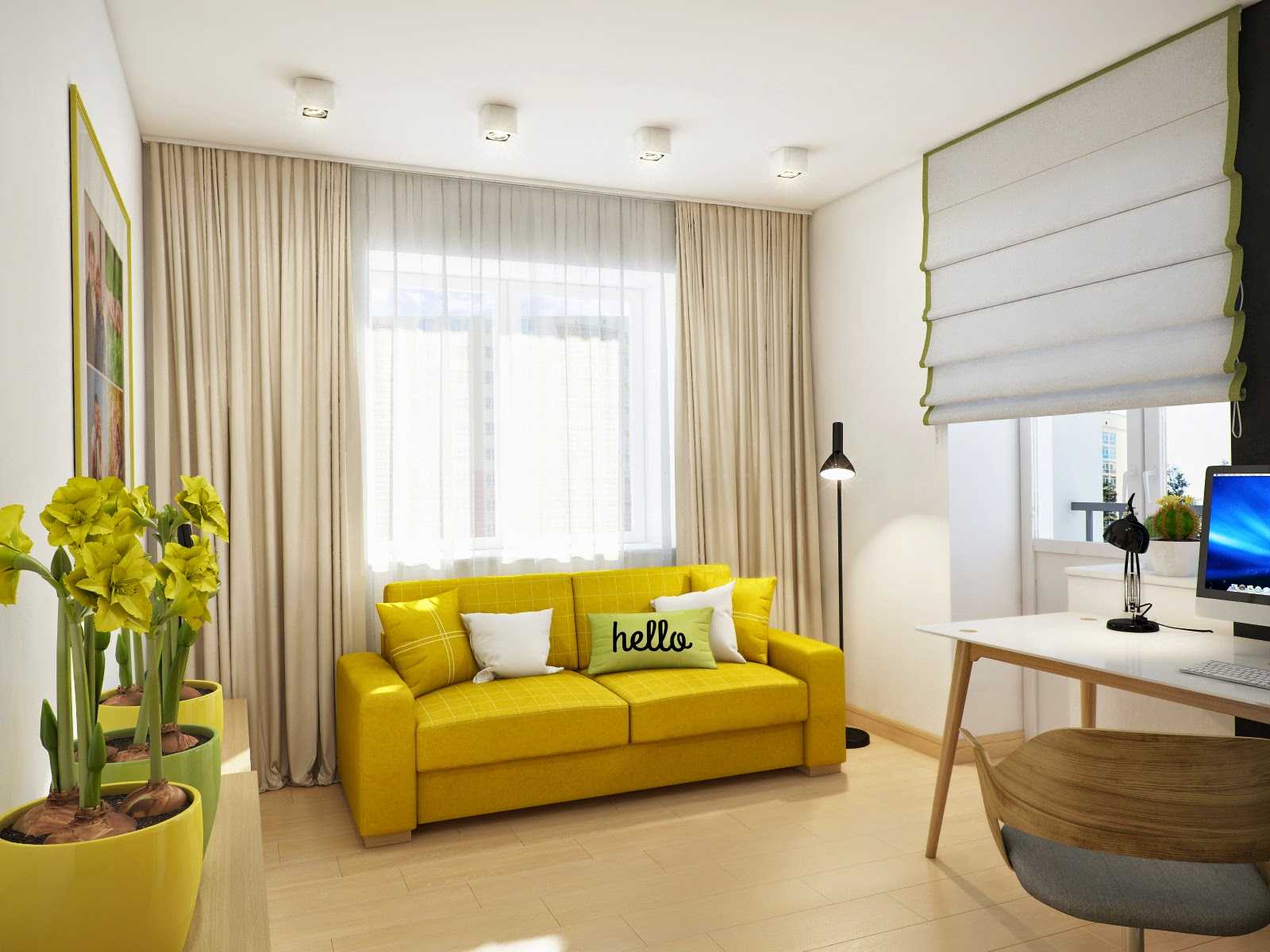
Mustard color in the interior of the apartment
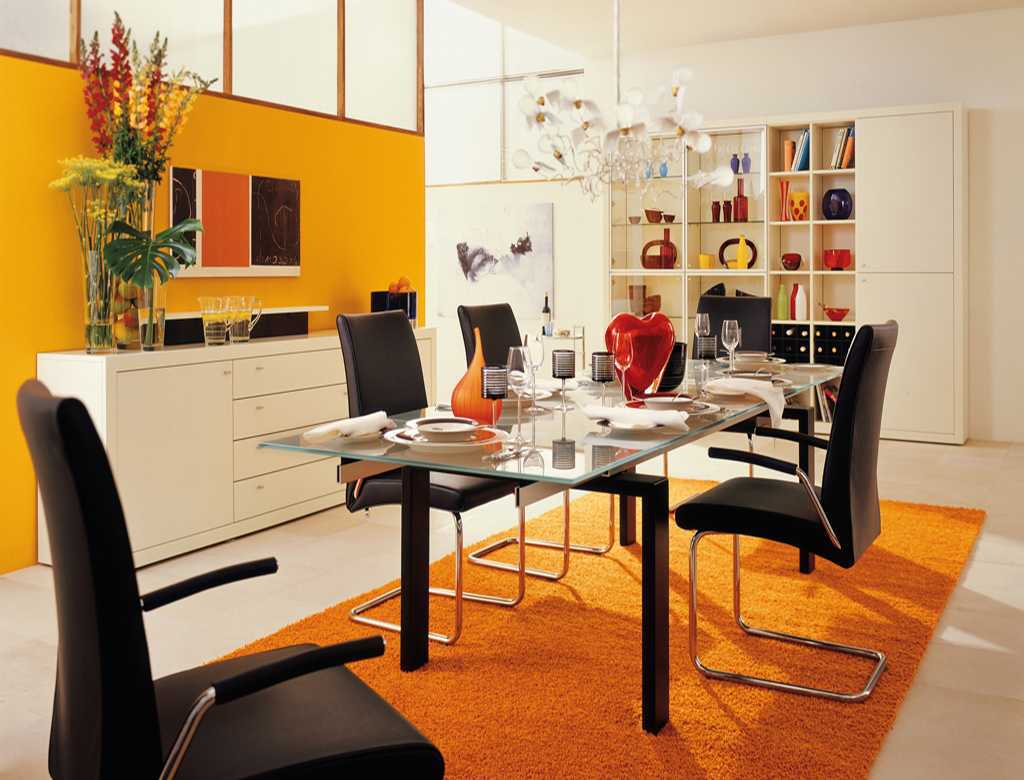
Mustard color interior design
In the same series, the use of a combination of mustard + shades of green. This combination is suitable for creating ethnic styles using herbal shades. Especially characteristic of the oriental style, in particular Japanese. Using dark shades of mustard, brown and olive in combination with expensive woods is a Japanese ethnic style.
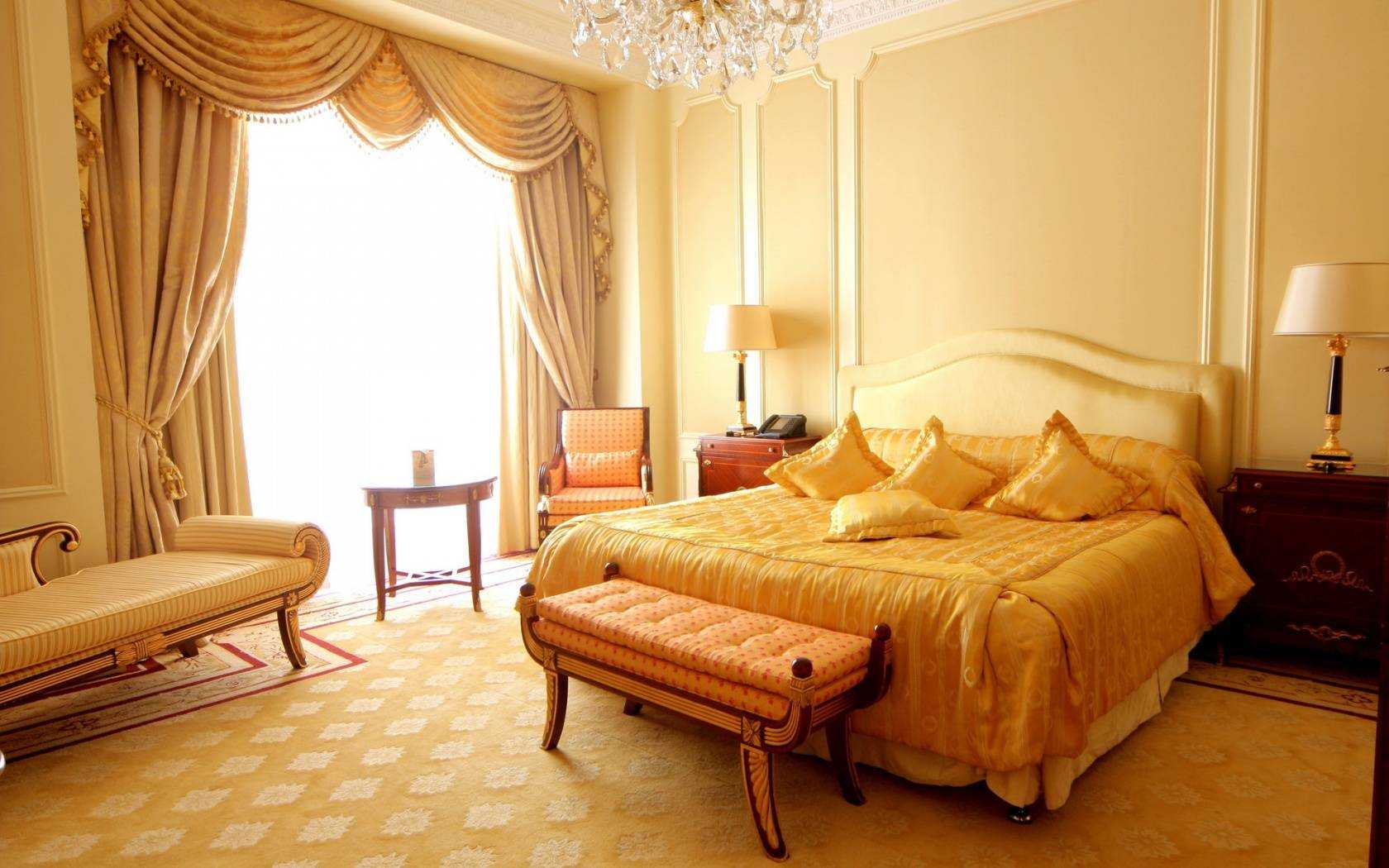
Mustard color in room design
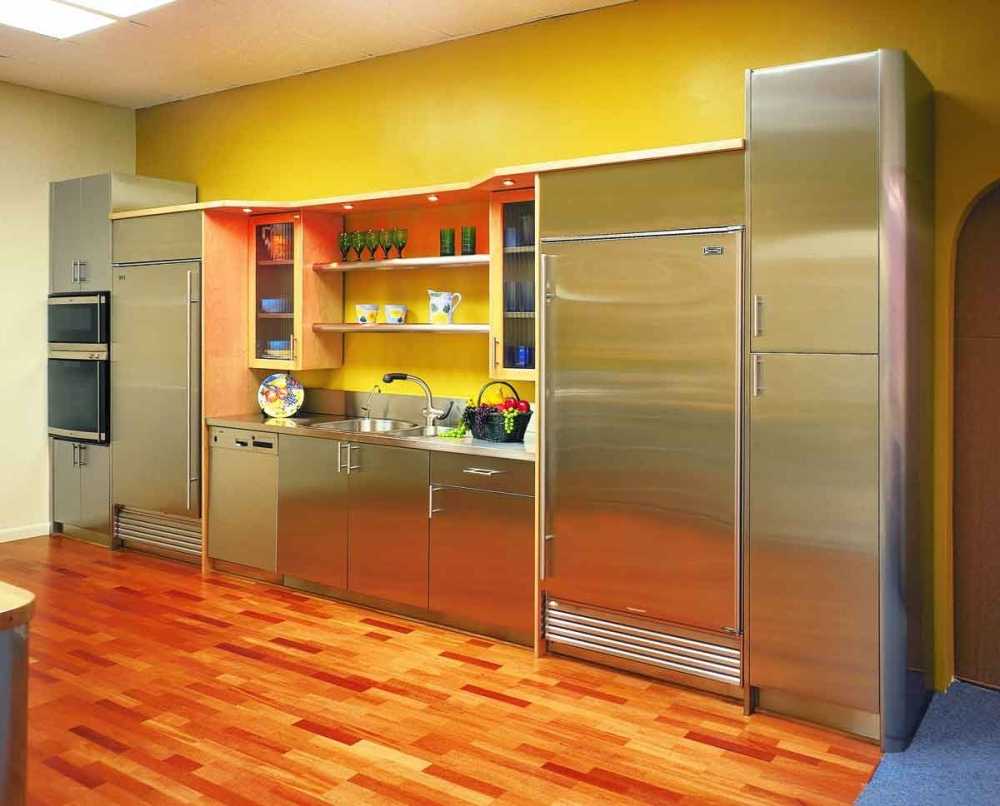
Light mustard room design
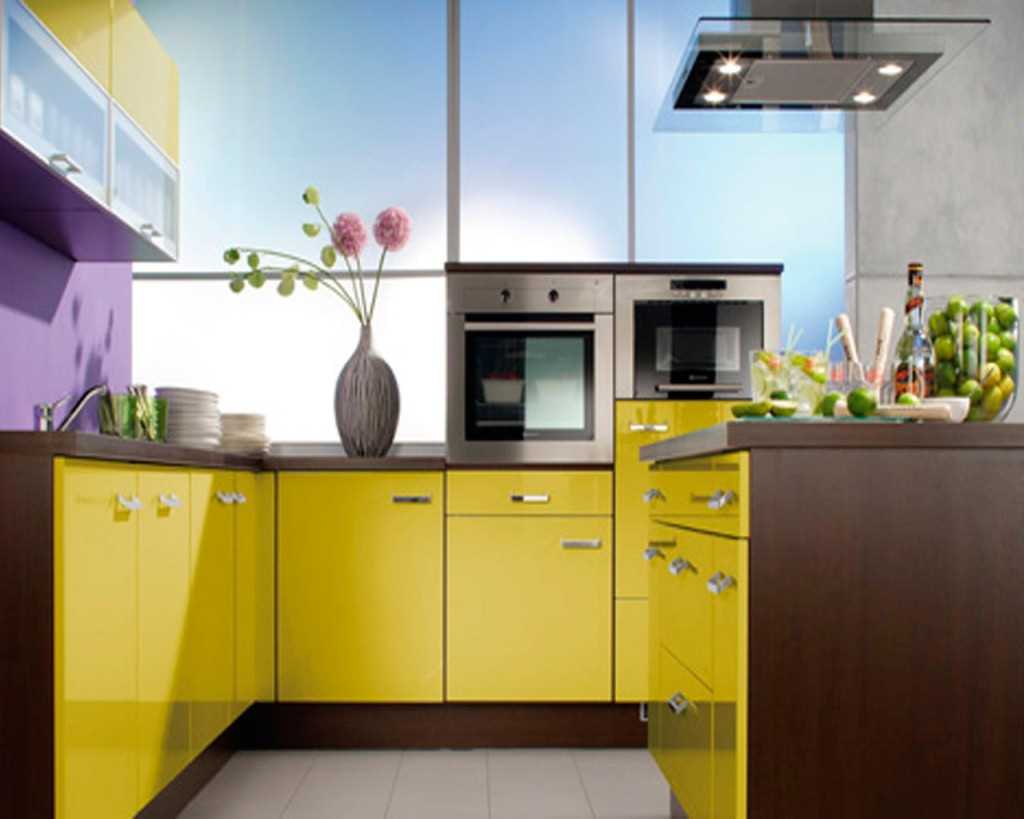
Mustard color room interior
Mustard sofa in the interior: 10 golden rules
A rather interesting solution is a mustard sofa in the interior. But you need to be extremely careful in buying a fairly bright piece of furniture, so read the 10 rules.
- If you have mustard-colored wallpapers in the interior, then a sofa in the same color gamut will look ridiculous. Then it is better to use more neutral shades.
- A sofa of this shade is quite self-sufficient, so do not overload it with decor items.
- To balance the room with the sofa, you can use mustard-colored curtains in the interior.
- It goes well with dark decor items, especially with brown.
- This color of furniture looks much richer against a background of neutral shades.
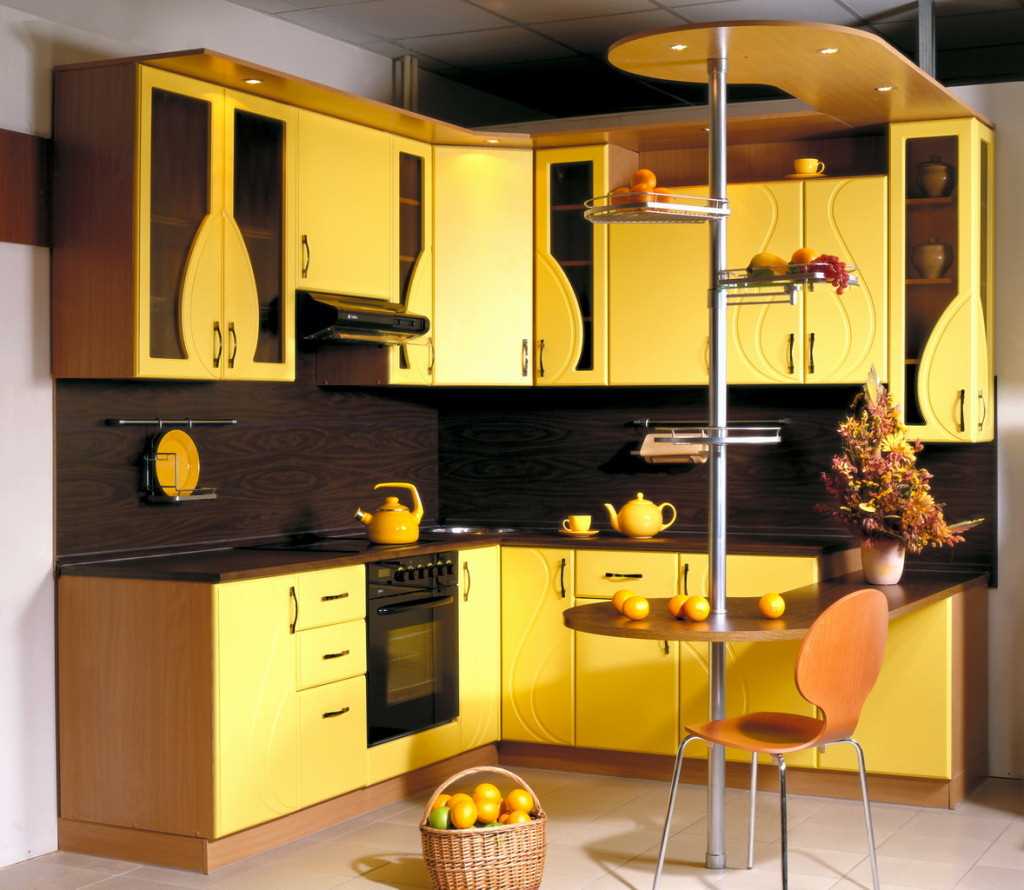
Mustard color in the interior of the apartment
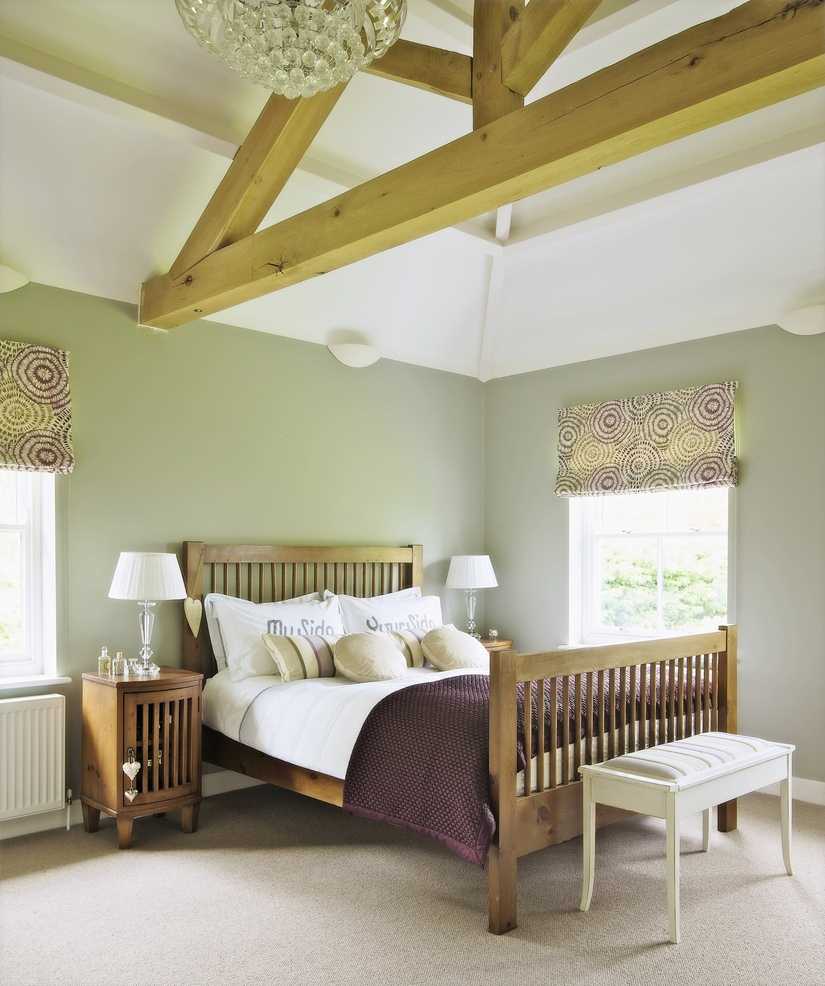
Mustard color interior design
- If you settled on neutral shades in the interior, but want to make the atmosphere more vibrant and vibrant, you must choose a mustard sofa with a yellow undertone.
- If the room has a lot of black and dark elements, then the sofa in such a color scheme will look gloomy.
- It combines light floor with similar furniture.
- If the room is small, then try to buy a not very large sofa, as your eyes will get tired of the shade.
- Try to achieve color harmony, monochrome in this case will look out of place.
We hope that the article was useful for reading and now you know all the main points of the design combination.
Video: Color in the interior.Color psychology
